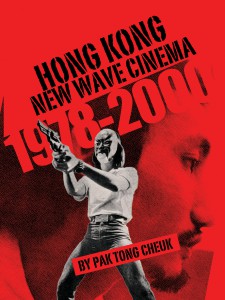Hong Kong New Wave Cinema (1978-2000)


Average rating: ![]()
| 0 | rating | |
| 0 | rating | |
| 0 | rating | |
| 0 | rating |
Your rating: -
Book Presentation:
The increasingly popular films of the Hong Kong New Wave grapple with such issues as East-West cultural conflicts, colonial politics, the divide between rich and poor, the plight of women in a modernizing Asian city, and the identity crises provoked by Hong Kong’s estranged motherland. Comprehensive and penetrating, Hong Kong New Wave Cinema analyzes the specific films that grew out of this dynamic era and investigates the historical and social conditions that allowed the New Wave to flourish.
Drawing on the auteur and genre theories, Pak Tong Cheuk here examines the cinematic style and aesthetics of New Wave directors, most of whom were educated at British and U.S. film schools. In addition to investigating the narrative content, structure, and mise-en-scène of individual films, this volume traces the overall development of the film and television industries in Hong Kong in the 1960s and 1970s. Cheuk’s intriguing study of the rise and fall of Hong Kong’s golden age of film establishes the New Wave as an era of great historical significance for scholars of cinema, popular culture, and the arts. “An interesting and detailed look at one of the most vital movements in the film industry during the latter part of the twentieth century. Pak’s work not only gives an informative overview of the origins of the movement, but goes into detail about the works of some of the most notable New Wave directors, including Tsui Hark, Ann Hui, and Patrick Tam, and the effects their pictures had on film-makers from all over the world.”—Neil Koch, HKfilm.net
Press Reviews:
“An interesting and detailed look at one of the most vital movements in the film industry during the latter part of the twentieth century. Pak’s work not only gives an informative overview of the origins of the movement, but goes into detail about the works of some of the most notable New Wave directors, including Tsui Hark, Ann Hui, and Patrick Tam, and the effects their pictures had on film-makers from all over the world.”
Neil Koch, HKfilm.net
"The content divided between the background and development of Hong Kong New Wave cinema and critical appraisals of central directors plus author Cheuk’s nuanced comprehension from proximity to the subject make the work of particular interest to students of contemporary cinema." – Henry Berry, gather.com
gather.com
"A resource for curious film buffs who want to gain some background knowledge. For the English reader who’s just seen Tsui Hark’s The Butterfly Murders and is scratching his head in need of guidance, this translation is the best guide."
Brian Hu | Asia Pacific Arts
See the publisher website: Intellect Books
> On a related topic:
The Hong Kong Filmography, 1977–1997 (2009)
A Reference Guide to 1,100 Films Produced by British Hong Kong Studios
by John Charles
Channel 4 and the British Film Industry, 1982-1998 (2024)
by Laura Mayne
Subject: Countries > Great Britain
American Film and Politics from Reagan to Bush Jr (2002)
Dir. Philip Davies and Paul Wells
Subject: Countries > United States
Hong Kong Crime Films (2023)
Criminal Realism, Censorship and Society, 1947-1986
Experts in Action (2021)
Transnational Hong Kong-Style Stunt Work and Performance